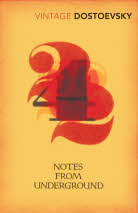More on this book
Community
Kindle Notes & Highlights
In the social displacement of an imported culture, Dostoevsky perceived a more profound human displacement, a spiritual void filled with foreign content.
He was challenged to reveal “the man in man,” precisely in and through the ideas of the new radicals themselves.
All Dostoevsky’s novels were written for the sake of the catastrophe,”
The man from underground refutes his opponents with the results of having carried their own ideas to an extreme in his life.
Unity is not singularity but wholeness, a holding together, a harmony, all of which imply plurality. What the principle of this harmony is, the underground man cannot say; he has never found it. But he knows he has not found it; he knows, because his inner disharmony, his dividedness, which is the source of his suffering, is also the source of consciousness.
Not just wicked, no, I never even managed to become anything: neither wicked nor good, neither a scoundrel nor an honest man, neither a hero nor an insect. And now I am living out my life in my corner, taunting myself with the spiteful and utterly futile consolation that it is even impossible for an intelligent man seriously to become anything, and only fools become something.
the pleasure here lay precisely in the too vivid consciousness of one’s own humiliation; in feeling that one had reached the ultimate wall; that, bad as it is, it cannot be otherwise; that there is no way out for you, that you will never change into a different person; that even if you had enough time and faith left to change yourself into something different, you probably would not wish to change; and even if you did wish it, you would still not do anything, because in fact there is perhaps nothing to change into.
How can a man of consciousness have the slightest respect for himself?


